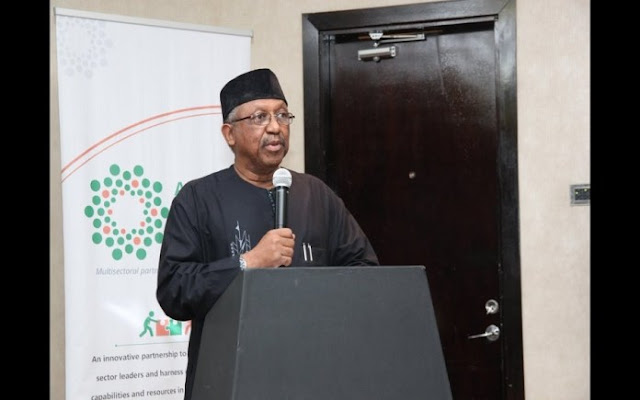COVID-19: FG asks Nigerians to prepare for societal changes as deaths near 1000
As Nigeria’s COVID-19 death toll nears 1000, the Federal Government has asked Nigerians to prepare for societal changes that will arise due to the reopening of the economy. This is in view of increased transportation, trade and human interaction, including the possible reopening of international air travelling.
Speaking during the joint national briefing of the Presidential Task Force (PTF) on COVID-19 on Monday in Abuja, the Minister of Health, Dr. Osagie Ehanire, said the situation requires efforts in order to perfectly balance the benefits of a reactivated economy with the need to keep citizens safe.
Ehanire said that Nigeria joined the rest of the world to commemorate World Mask Week since Friday, August 7, and emphasised the importance of wearing face masks to reduce the risk of COVID-19 spread in the absence of a vaccine.
Our focus is still to reduce fatality to less than 1%, not only with preventive measures but also with a strategy that encourages citizens to report early for treatment and for hospitals to attend to all patients in distress; most importantly to be able to provide oxygen treatment,” the minister said.
Quick facts: By midnight of Monday, August 10, Nigeria recorded 950 deaths from 46,867 confirmed cases, while 33,346 have been discharged after making full recovery.
According to data provided by the Minister during the briefing, 549 out of the 774 local government areas in the country have confirmed cases of the virus, with half of the cases concentrated in 20 local government areas. It is in view of this that Nigerians need to become more careful. As the minister said, COVID-19 is still around and would be for a long time.
Policy changes: In line with the new figures, the government is now turning its priorities to gadgets that provide oxygen to be in many facilities, including General Hospitals and larger Primary Health Centres (PHCs), as well as solar-powered aggregates, where available, Ehanire said.
He added that federal health institutions with oxygen plants should activate them as a matter of priority and ensure delivery to their Accident & Emergency (A&E) departments.
According to him, the other measure is the activation of an ambulance service that can easily and safely move patients to treatment centres. According to him, “This strategy worked well in Kano and all states should prepare to set up the system.”
He added that the National Council on Health (NCH), which is the highest policy-making body on matters relating to health in Nigeria, had approved the revised Guidelines for the Administration, Disbursement and Monitoring of the Basic Healthcare Provision Fund (BHCPF), also called the BHCPF Guidelines 2020.
This new document addresses anomalies in the 2018 operations manual and restarts the Basic Health Care Provision Fund and the process of disbursement of funds, which had been suspended at the start of the year
The new BHCPF has much better country ownership structure, offers a much-improved benefit package and more robust fiduciary control for transparency and accountability. Development Partners are invited to support the new revitalization plan in whatever manner they desire,” he explained.
The National Council on Health (NCH) also approved the establishment of the National Emergency Medical Service and Ambulance System (NEMSAS).

Comments
Post a Comment